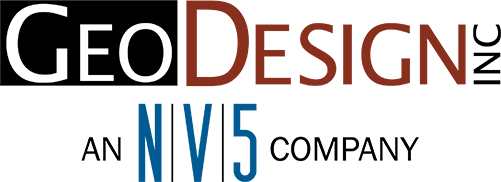Field Q&A: Jessica Pence, Geotechnical Field Staff

What’s geotechnical field work really like? We asked geotechnical field staffer Jessica Pence about her work, what she loves about it, and advice for those just starting out:
What do you like most about field work?
I like that it’s hands-on. You are able to see what is happening and what something is actually going to look like, instead of just seeing a set of plans.
What does a typical day look like for you?
It depends on if I’m on a full-time site, or if I’m doing the “milk run.” If it’s a full-time site day, it’s basically going to the office in the morning to get a field binder and any field forms needed, looking over project plans, then going to the site, talking to the contractors and observing what’s happening – and if something is different or doesn’t go as planned (or even if it’s all going smoothly), calling the project manager. After doing construction observation for the day, I head back into the office and write the field report.
If it’s a milk run day, it’s going to the office to grab the field binders and the nuke gauge, and then covering what’s on my calendar for the day, which is usually somewhere around 4 site visits. Site visits generally consist of me either observing trench backfill, footing granular pads, evaluating subgrade, observing proof rolls, or a combination of things. A lot of time on site for me is speaking to contractors and calling project managers. At the end of the day, I go back to the office, check the nuke gauge back in, check in any samples for lab testing that may have been collected from any of the sites, and then write the field reports.
What’s your favorite type of field work?
My favorite type of field work is the shoring jobs. If there’s a random pocket of contaminated soil or something that wasn’t expected to be there, it typically gets found during shoring. Being on the same site for a good amount of time allows you to become more familiar with the site and how things are progressing. It allows you time to learn and become aware of what things you may need to look at/watch out for, that are specific for that site.
Do you have a favorite project so far? Why is it your favorite?
If I had to choose a favorite project, I would say Peterson CAT. It was the first project for me where I was able to see the site in the very beginning of construction and saw the site change through cut and fill, all the way through to where there’s now pavement and structures out there.
What do you find most challenging about your job?
I think the most challenging thing is communication. Communication with the project managers when I’m trying to describe what I’m seeing in the field or explaining why I just sent them that picture. Communication with contractors when I’m trying to convey what the project manager is recommending. I just try to be as clear and concise as I can.
Most rewarding?
What I find most rewarding about this job is the opportunity to learn new things. I’m continuously learning new things from either the project managers or the other field staff through conversations about the different projects.
 What advice would you give to someone just starting out in your position?
What advice would you give to someone just starting out in your position?
Ask questions. I know it gets said a lot that we need to ask questions, but it’s true. If there’s something going on that you don’t understand or even if you’re curious, ask someone. I think one of the best ways to learn is by asking. The project managers and principals are excellent sources of information. Also, the senior field staff may not be able to answer the question you have, but they can definitely point you in the direction of someone who knows the answer.
